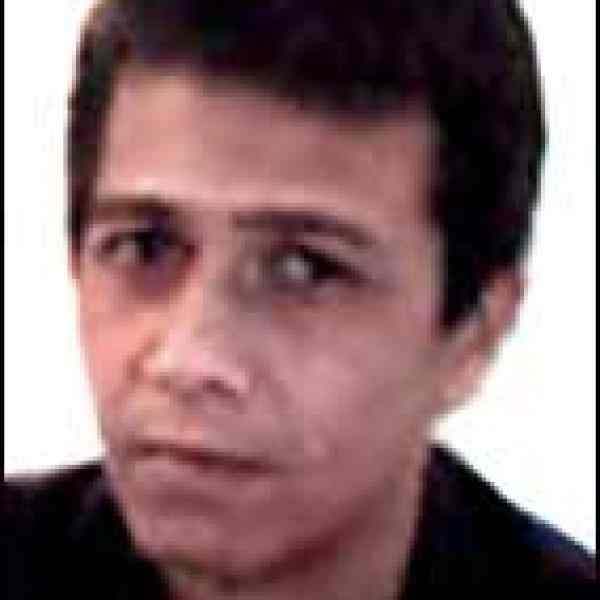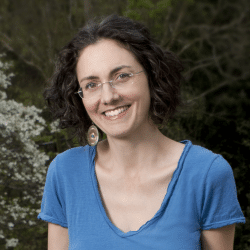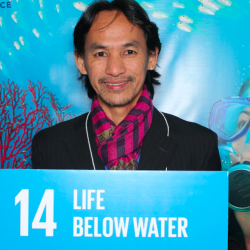Introduction
In rural Mozambique schools are almost non-existent, having been destroyed in the country’s civil war. Agostinho Mamade is rebuilding and staffing these schools, and getting the support of formerly apathetic parents by appealing to their desire to see their children become upstanding, productive adults.
The New Idea
Very few schools remain in rural Mozambique, and illiteracy is at an all-time high. Many rural Mozambiquians are still deeply traumatized by their wartime experiences and ill-equipped to raise children. They are frustrated that their children do not seem to be learning the proper values and skills from school, but most are disengaged from their children’s education and are unaware of their critical role in the development of their children’s future. Agostinho guides parents through a process of imagining the values and resources they want to instill in their children, and then helps them imagine meaningful ways to turn these ideas into reality. Most notably, Agostinho builds and staffs innovative preschools that take into account the desires of parents and community members and that focus on community child development, not just day care and learning. He has been responsible for the creation of schools that serve five thousand preschoolers in the war-torn rural areas north of Maputo. He keeps community adults actively involved in the schools, where they act as positive role models, and is beginning to train teenagers to teach and care for preschools as well.
The Problem
Civil war tore Mozambique apart from 1975 to 1993, and over a decade later this country is still reeling from the effects. More than a million people were killed, and an entire generation had its childhood cut short. Preschools and schools closed down, teachers were systematically killed, and literacy plummeted. (Today’s literacy rate is only 63 percent for males and 33 percent for females.) The country’s most basic infrastructure was destroyed; in many villages, not even the small single-roomed building that once served as town hall and school is standing.
Throughout the war, both sides kidnapped children to work as soldiers, slaves, and prostitutes. The surviving children have long since returned to their home villages and resumed their normal lives. Many are raising their own families now, but the scars of their wartime traumas still remain. Many have difficulty raising children, since their experiences have left them prone to deep psychological and emotional problems like depression, violence, or addiction. Burdened with a painful past, they struggle to be good role models for their children. Sometimes parents don’t even realize, or refuse to admit, how their behavior negatively influences their children.
Mozambique is run by a democratically elected government, but its education policy is ill-conceived. Between 1986 and 1996, most state preschools were shut down. Children were once legally required to attend school between the ages of six and ten, but the government has recently raised the age to leave school to thirteen. Those extra three years consumed the budget for preschools, leaving very young children out in the cold. This is exactly the age at which children are most impressionable and the age at which they most desperately need good role models. When their parents cannot live up to this task, teachers are often the only other adults with similar influence in a child’s life.
The Strategy
Agostinho has created The Child, Family, and Development Association (CFD, and in Portuguese, Associação Criança Familia e Desenvolvimento). CFD works in rural areas to help villagers assess of what kind of future they want for their children.
To do this, Agostinho has developed a unique interviewing technique, called the “Machamba Method,” machamba being the local word for farm. He takes community members through a “visioning process,” asking them to imagine the seasons and the planting cycle. Agostinho guides them with questions likes “What represents the rain in your community?”, “Who might the plants be?” and “ What part of farming are children like?”
Agostinho encourages people to use their imaginations and answer each question honestly. Although the questions seem strange and surreal, the agricultural analogy helps farmers to open up. These exercises are, for many participants, the first time in their lives that they have been asked to think metaphorically. Since farmers have a close relationship with the land, it’s easy for them to relate to this new way of thinking.
Agostinho then asks participants what kind of adult they would like their children to become. Most people initially respond that they just want their children to be intelligent or well-educated, but with a little probing it soon emerges that people also want their children to be responsible, healthy, happy, moral, and respectable.
Next, he asks parents, “At what age do you think children start understanding what’s right and wrong in adults’ behavior?” Parents are usually embarrassed to admit that their children start to understand their parents’ shortcomings at ages as young as three or four. Through this questioning, parents come to realize that the children are always watching them and learning from their behavior. Continuing the farming metaphor, Agostinho explains that “what we plant, we will reap.” He encourages the parents to “be the change we want to see in the world,” to be the sort of people that they’d like their children to be. By communicating with parents in this new way, using analogies that they understand and that have a real, deep significance to their lives, he gets them to see for the first time the consequences of their behavior on their children. Once they have made this crucial first step, they are eager to do whatever they can to rectify the situation. Agostinho and parents are working together to bring back the schools, so as to give children not just an academic education but also a moral one.
Currently, Agostinho and CFD is working with approximately 5,000 children in the rural areas north of Maputo. Additionally, CFD has started 41 community centers, where teenage volunteers are trained to be preschool program assistants. Agostinho has lobbied for government funding to be allocated for early childhood education. CFD also trains other organizations on its community development methodologies and curriculum planning.
The Person
When Agostinho was still a university undergraduate during Mozambique’s civil war, the government conscripted his entire class to become school teachers. They had no choice in the matter, but Agostinho still did his best to reach his students and prepare them for life. Agostinho was trained as an English and Portuguese teacher, before going out into the countryside to teach school for several years. He enjoyed the work, but eventually found the classroom setting too confining. His fluency in English won him a position with Save the Children, where he took on their “Children War Project.” He coordinated their reunification program from 1990 to 1995. There he discovered the universal pain of losing a child. Parents who lost their own children were eager to help others in the same situation, sending local information to distant parents. In 1992, the civil war ended. By 1995 most children had been reunited with their families, so Save the Children discontinued the program.
Agostinho was deeply affected by his years with Save the Children, and was especially impressed by the willingness of villagers to help total strangers. It was this commitment that inspired him to start CDF, to help the children who continue to feel the effects of the war.




